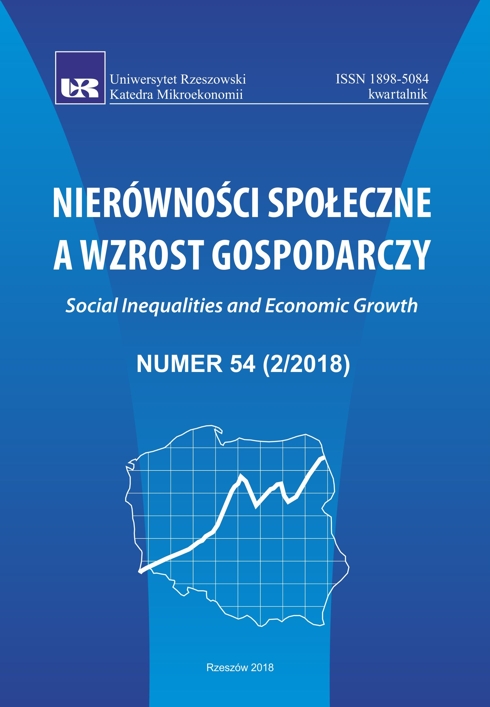The impact of CHF/PLN rate changes on borrowers’ income creation
DOI:
https://doi.org/10.15584/nsawg.2018.2.14Keywords:
feedbacks, denominated debt, systematic riskAbstract
On January 15th 2015, when the Swiss National Bank (SNB) suddenly announced that it would no longer hold the Swiss franc at a fixed exchange rate with the euro there was a panic. The franc soared, which drastically affected the cost of loans taken out in the Swiss francs and the current borrowers incomes. The issue of perturbations caused by providing by banks credits in foreign currencies and credits denominated in foreign currencies is multi-layered and complex. It comprises relations on economic, legal and ethical planes between three players: banks and government in the form of empire: the executive (regulations, the Office for Competition and Consumer Protection and the Financial Supervision Authority), judicial and legislative authorities. The denominated currency credit has become a speculative instrument with four risk groups. Besides the traditional interest rate risk and currency risk of principal and interest the consumers were exposed to currency margin risk of the bank and currency spread risk. Systemic risk is a specific type of risk, for which effects of amplification, leverage or positive feedback are built into system. Financial markets and banking systems are especially prone to “the herd instinct” behavior. Large amounts of denominated debt and an increase in CHFPLN can lead to an increase in systemic risk and a decrease in borrowers’ incomes. This can lead to positive feedback in the economic system which can result in a complete collapse of consumer incomes.Downloads
Download data is not yet available.
Downloads
Published
2020-11-13
How to Cite
Dąbrowski, I. (2020). The impact of CHF/PLN rate changes on borrowers’ income creation. Social Inequalities and Economic Growth, 2(54), 218–228. https://doi.org/10.15584/nsawg.2018.2.14
Issue
Section
Articles
License
Copyright (c) 2018 University of Rzeszow

This work is licensed under a Creative Commons Attribution-ShareAlike 4.0 International License.


